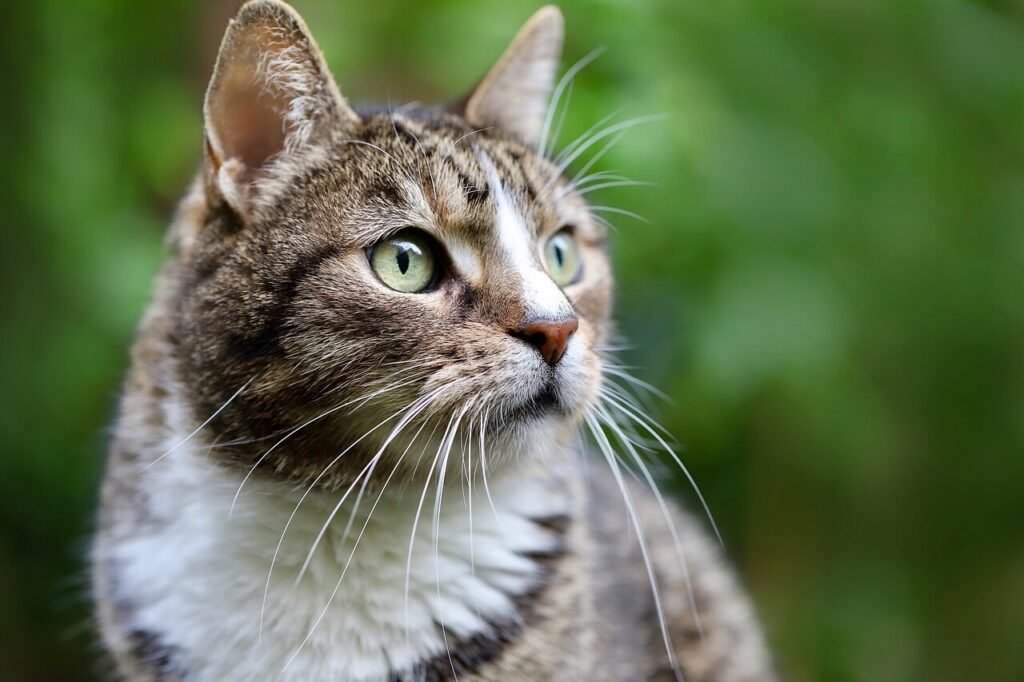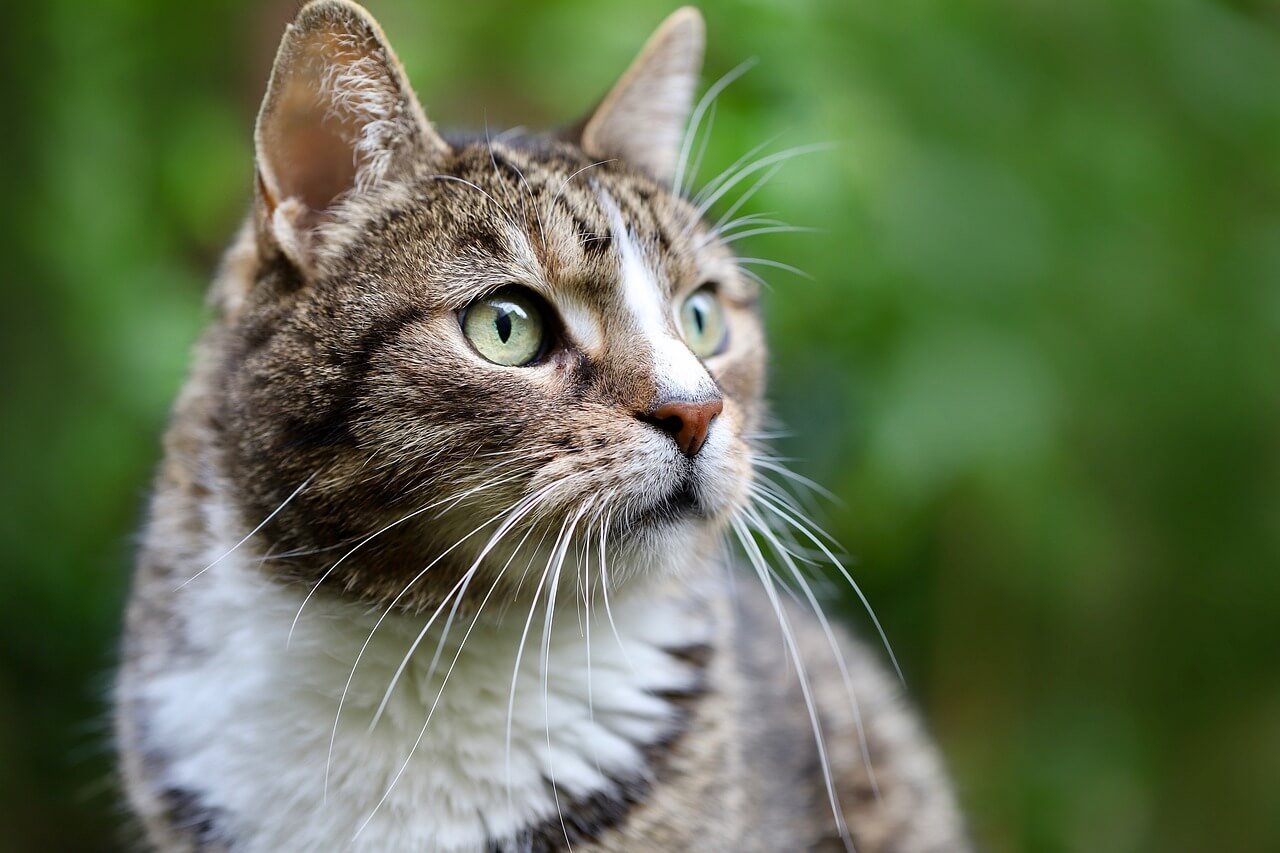Why Is My Cat Sneezing and Have Watery Eyes? Understanding the Causes
As a cat parent, there’s nothing quite as worrying as seeing your furry friend sneeze repeatedly or notice their eyes watering. While an occasional sneeze might not be a cause for alarm, persistent sneezing paired with watery eyes can indicate underlying health issues that need attention. Cats are masters at hiding discomfort, so recognizing these symptoms early is crucial to ensure their well-being. In this blog post, we’ll explore the possible reasons behind your cat’s sneezing and watery eyes, how to identify them, and what steps you can take to help your feline companion feel better.
Common Causes of Cat Sneezing and Watery Eyes
When your cat starts sneezing frequently and has watery eyes, it’s essential to understand the potential causes. These symptoms often point to specific triggers or conditions that may require veterinary attention. Here’s a list of common culprits:
Respiratory Infections
These are among the leading causes of sneezing and watery eyes in cats. Viral infections like feline herpesvirus or calicivirus can irritate the nasal passages.Allergies
Cats can suffer from allergies just like humans. Pollen, dust, mold, or even certain cleaning products can trigger sneezing and eye irritation.Foreign Objects
Sometimes, small particles like dust, grass seeds, or hair can get lodged in your cat’s nasal passage, causing irritation and watery eyes.Dental Issues
Believe it or not, dental problems such as abscesses or infections can lead to sneezing and watery eyes due to the proximity of the sinuses to the teeth.Environmental Irritants
Strong scents from candles, perfumes, or air fresheners can irritate your cat’s sensitive respiratory system.
Understanding these causes can help you narrow down the issue. However, if the symptoms persist, it’s always best to consult a veterinarian for a proper diagnosis.
Symptoms to Watch For: When Sneezing and Watery Eyes Become Concerning
While sneezing and watery eyes can sometimes be harmless, certain accompanying symptoms should raise a red flag. If your cat displays any of the following signs, it’s time to consider seeking professional advice:
Nasal Discharge
Clear discharge is usually less concerning, but yellow or green mucus could indicate an infection.Lethargy
If your cat is unusually tired or unwilling to engage in activities, it might signal a more serious issue.Loss of Appetite
A lack of interest in food can accompany respiratory issues or pain caused by dental problems.Frequent Pawing at the Face
This behavior suggests discomfort or irritation in the eyes, nose, or mouth.Difficulty Breathing
Labored breathing alongside sneezing and watery eyes is a critical sign that requires immediate attention.
Being vigilant about these symptoms can make a significant difference in your cat’s recovery. Early intervention can prevent minor issues from escalating into severe health problems.
Check this guide 👉 Why Do Cats Love Sleeping Above Our Heads? Best 7 Tips!
Check this guide 👉 Why Is My Cat Growling? best 7 Behavior Tips!
Check this guide 👉 Why Is My Cat Dragging Their Butt? Best 7 Expert Tips!

Preventive Measures | Treatment Options |
|---|---|
Regular vet check-ups | Antibiotics for bacterial infections |
Keeping the environment clean | Antihistamines for allergies |
Avoiding strong scents | Nasal decongestants (vet-prescribed) |
Providing a balanced diet | Eye drops for irritated eyes |
Vaccinating against viruses | Dental treatment for related issues |
How to Comfort Your Cat at Home
While waiting for a vet appointment or managing mild symptoms, there are several ways you can comfort your cat at home. These measures can help reduce discomfort and promote faster recovery:
Keep Them Hydrated
Ensure your cat has access to fresh water to stay hydrated, which supports overall health.Use a Humidifier
Adding moisture to the air can soothe irritated nasal passages and ease breathing.Clean Their Eyes Gently
Use a damp cloth to wipe away any discharge around the eyes carefully.Limit Exposure to Irritants
Remove potential irritants like scented candles or dusty objects from your home.Provide a Stress-Free Environment
Create a calm space where your cat can rest without disturbances.
By implementing these tips, you can help your cat feel more comfortable while addressing the root cause of their symptoms.
When to Seek Immediate Veterinary Care
In some cases, sneezing and watery eyes may indicate a medical emergency. Knowing when to seek urgent care can save your cat’s life. Here are scenarios that warrant immediate action:
Severe Difficulty Breathing
If your cat struggles to breathe or gasps for air, this is a critical situation.Swelling Around the Face
Facial swelling combined with sneezing could signify an allergic reaction or infection.Blood in Discharge
The presence of blood in nasal discharge or around the eyes is highly alarming.Unresponsiveness
If your cat seems unresponsive or extremely weak, seek help immediately.Persistent Symptoms Over Days
If sneezing and watery eyes last more than a few days despite home care, it’s time to visit the vet.
Acting quickly in these situations ensures your cat receives timely treatment and avoids complications.
Additional Tips for Managing Cat Sneezing
If your cat is experiencing sneezing and watery eyes, there are several practical steps you can take to manage their symptoms effectively. These tips focus on improving their environment and overall well-being. Here’s what you can do:
Improve Air Quality
Invest in an air purifier to reduce allergens like dust and pollen in your home.Regular Grooming
Brush your cat’s fur frequently to minimize loose hair that could irritate their nasal passages.Avoid Smoking Indoors
Secondhand smoke can severely irritate a cat’s respiratory system and worsen symptoms.
By making these small changes, you can create a healthier living space for your cat and potentially reduce sneezing episodes.
Dietary Adjustments to Support Immune Health
A balanced diet plays a crucial role in maintaining your cat’s immune system, which can help them fight off infections or allergies. Consider incorporating the following dietary adjustments to boost their health:
Include Omega-3 Fatty Acids
Foods rich in omega-3s, like fish oil, can reduce inflammation and support eye health.Provide High-Quality Protein
Ensure your cat’s diet includes lean proteins to fuel their immune system and promote healing.Add Hydration-Boosting Foods
Wet food or broth can increase water intake, keeping your cat hydrated and aiding recovery.
A nutrient-rich diet not only strengthens your cat’s immunity but also helps them recover faster from minor ailments.
Creating a Safe Space for Your Cat
Cats thrive in environments where they feel safe and secure, especially when they’re unwell. Providing a dedicated safe space can alleviate stress and speed up their recovery. Here’s how you can create one:
Choose a Quiet Room
Select a calm area of your home away from noise and foot traffic.Include Comfort Items
Place their favorite blanket, toys, or bed in the space to make it inviting.Limit Interactions with Other Pets
If you have multiple pets, give your cat some alone time to rest without interruptions.
A safe and comfortable environment allows your cat to focus on healing while feeling protected and relaxed.
FAQ
Can I give my cat over-the-counter medicine for sneezing?
No, you should never give your cat human medications without consulting a vet. Some drugs can be toxic to cats.
How can I tell if my cat’s sneezing is allergy-related?
Look for patterns, such as sneezing after exposure to certain scents or seasonal changes. Allergy-related sneezing often occurs intermittently rather than constantly.
Are vaccinations necessary to prevent sneezing?
Yes, vaccinations protect against viral infections like feline herpesvirus, which can cause sneezing and watery eyes.
Can stress cause sneezing in cats?
While stress itself doesn’t directly cause sneezing, it can weaken the immune system, making cats more susceptible to infections.
What should I do if my cat’s eyes are red and swollen?
Clean the area gently with a damp cloth and contact your vet promptly, as this could indicate an infection or injury.
Final Thoughts: Prioritizing Your Cat’s Health
Sneezing and watery eyes in cats may seem minor at first glance, but they can sometimes signal more significant health concerns. By staying informed and observant, you can catch potential issues early and provide your cat with the care they need. Remember, prevention is always better than cure—regular vet visits, a clean environment, and a nutritious diet go a long way in keeping your feline friend healthy. If you ever feel uncertain about your cat’s symptoms, don’t hesitate to reach out to a professional. After all, your cat relies on you to keep them safe, happy, and thriving.
Dog Tapeworm Life Cycle: Best 7 Expert Tips! – Learn how tapeworms infect dogs, spot symptoms, and break the cycle with expert prevention strategies.
Anxious Cat Body Language: Best 7 Expert Tips! – Learn to spot signs of stress, understand triggers, and help your cat feel safe and relaxed.
Anxious Dog Body Language: Best 7 Expert Tips! – Learn to spot signs of anxiety, respond effectively, and help your dog feel safe and secure.
Is Breeding Dogs Bad? Best 7 Expert Tips! – Explore the ethics, benefits, and risks of dog breeding to make informed decisions for a better future.





